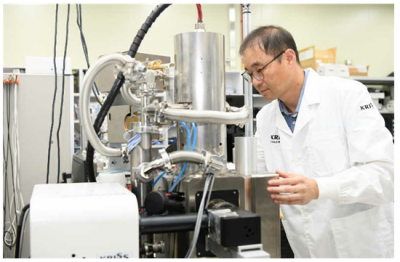Science
AI Breakthrough Transforms 3D Imaging of Biological Samples

The Korea Research Institute of Standards and Science (KRISS) has unveiled an innovative artificial intelligence (AI)-based algorithm that drastically enhances the reconstruction of three-dimensional (3D) structures from two-dimensional (2D) images. This development is particularly significant for biological samples examined using a scanning electron microscope (SEM).
The newly developed image segmentation algorithm allows for rapid processing and reconstruction of complex biological structures, which are often challenging to visualize in traditional formats. By converting 2D cross-sectional images into detailed 3D representations, researchers can gain deeper insights into cellular structures and functions.
Enhancing Research Capabilities
The algorithm’s capabilities promise to significantly improve research efficiency in various fields, including biology and materials science. This advancement comes at a time when the demand for sophisticated imaging techniques is increasing, particularly in understanding intricate biological processes.
Lee Ho Seong, the president of KRISS, emphasized the potential impact of this technology: “Our AI-based approach will not only accelerate research but also provide clearer insights into the micro-world that could lead to breakthroughs in various scientific domains.”
With traditional methods often requiring extensive manual processing and interpretation, this AI algorithm represents a pivotal shift towards automation in microscopy. It is designed to handle large volumes of data generated by SEM, thus facilitating quicker and more accurate analyses.
Potential Applications and Future Directions
The implications of this technology extend beyond academic research. Industries such as pharmaceuticals and materials engineering stand to benefit significantly from enhanced imaging capabilities. By enabling more accurate modeling of biological and synthetic structures, the algorithm could streamline the development of new drugs and materials.
As this AI technology evolves, further refinements are expected to improve its accuracy and applicability across a broader range of samples. Researchers anticipate that integrating this AI tool into existing workflows will not only enhance productivity but also open new avenues for exploration in microscopic research.
This development by KRISS marks a significant milestone in the intersection of artificial intelligence and microscopy, paving the way for future innovations that could reshape scientific research methodologies. The collaboration between AI and imaging technologies is expected to yield exciting advancements in understanding the microscopic world.
-

 Lifestyle3 months ago
Lifestyle3 months agoLibraries Challenge Rising E-Book Costs Amid Growing Demand
-

 Sports3 months ago
Sports3 months agoTyreek Hill Responds to Tua Tagovailoa’s Comments on Team Dynamics
-

 Sports3 months ago
Sports3 months agoLiverpool Secures Agreement to Sign Young Striker Will Wright
-

 Lifestyle3 months ago
Lifestyle3 months agoSave Your Split Tomatoes: Expert Tips for Gardeners
-

 Lifestyle3 months ago
Lifestyle3 months agoPrincess Beatrice’s Daughter Athena Joins Siblings at London Parade
-

 World3 months ago
World3 months agoWinter Storms Lash New South Wales with Snow, Flood Risks
-

 Science3 months ago
Science3 months agoTrump Administration Moves to Repeal Key Climate Regulation
-

 Business3 months ago
Business3 months agoSoFi Technologies Shares Slip 2% Following Insider Stock Sale
-

 Science2 months ago
Science2 months agoSan Francisco Hosts Unique Contest to Identify “Performative Males”
-

 Science3 months ago
Science3 months agoNew Tool Reveals Link Between Horse Coat Condition and Parasites
-

 Sports3 months ago
Sports3 months agoElon Musk Sculpture Travels From Utah to Yosemite National Park
-

 Science3 months ago
Science3 months agoNew Study Confirms Humans Transported Stonehenge Bluestones









